 00:31:00
00:31:00
The Future of Life
Ever since its first appearance, more than 3.5 billion years ago, life has evolved without guiding plan, propelled by: 1) its own intrinsic properties, which, with the help of outside energy, provided the necessary driving force; 2) accidental geneti....
More details | Watch nowFrom the Structure of the Ribosome to the Design of New Antibiotics
Structural studies of the ribosome exemplify the evolution of structural studies in cell biology from the early negatively stained images of macromolecular assemblies in whole cells, to a detailed atomic understanding of the mechanism of action of a ....
More details | Watch nowDiscovery of Nitric Oxide and Cyclic GMP in Cell Signalling and their Role in Drug Development
The role of nitric oxide in cellular signaling in the past three decades has become one of the most rapidly growing areas in biology. Nitric oxide is a gas and a free radical with an unshared electron that can regulate an ever-growing list of biolog....
More details | Watch now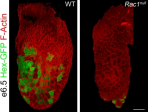 00:29:00
00:29:00
The Lability of the Differentiated State
Many classical studies have shown that cell fates become progressively restricted during development and that this restriction is typically irreversible. This has led to the dogma of the Stability of the Differentiated State: cells cannot typically ....
More details | Watch now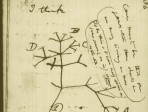 00:35:00
00:35:00
Updated Notions on Darwinian Evolution
Charles Darwin had based his theory of biological evolution on the observation that phenotypic variants of a given species can sometimes over-grow their parental population, and he attributed this to selective advantage, i.e., to the impact of natura....
More details | Watch now 00:29:00
00:29:00
Protein Cross Talk in Cell Signaling
The main focus of the talk will be on signaling by tyrosine phosphorylation, which has been directly implicated in the regulation of cell growth, differentiation and transformation. External signals coming in the form of mitogenic hormones and growt....
More details | Watch nowSignals and Signalling Mechanisms in the Central Nervous System
Our brain is a network of about 10^11 neurons, which are connected by synapses. A neuron typically receives input from about 10000 other neurons, which can be either excitatory or inhibitory. The neuron integrates these inputs and generates an 'act....
More details | Watch nowInfections in the Etiology of Human Cancers
During the past century a number of chemical and physical risk factors for human cancers have been identified. Only relatively recently, mainly during the past 30 years, infectious agents have been identified as important human carcinogens. Besides....
More details | Watch now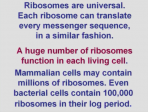 00:41:00
00:41:00
Climbing the Everest Beyond the Everest
The challenges associated with pursuing ribosomal crystallography can be described as a series of Everest climbing. At each step, when reaching the summit, a taller and more difficult one became exposed. Snapshots of this story will be described.__....
More details | Watch nowTelomeres and Telomerase in Human Health and Disease
Telomeres are the protective tips that stabilize the ends of chromosomes. The function of telomeres is to allow cells to divide while holding the genetic material intact. Telomeres contain specialized, simple repetitive DNA sequences that, together....
More details | Watch now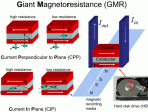 00:38:00
00:38:00
Humanity in the Cosmos
In the recent past, rapid scientific and technological developments have had tremendous impact on human society. Notably the pc, internet and mobile telephony changed the world and shrank our planet. These developments are vastly different from the....
More details | Watch now 00:31:00
00:31:00
From Millisecond to Attosecond Laser Pulses
A historical overview is presented of the experimental development of ever shorter laser pulses from 1960 to the present. Already in the early sixties nanosecond pulses were achieved and the entry into the picosecond domain was reached in the late s....
More details | Watch now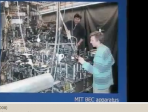 00:25:00
00:25:00
Role of Cortical Noise in Vision
Our brains are always generating electrical signals, even if we close our eyes, plug our ears, and lie in a warm bath. These signals are called cortical noise because they don't correlate with any sensation or thought of which we are aware. I will ....
More details | Watch now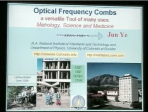 00:36:00
00:36:00
The Individuality of Light Quanta
Light quanta are the fundamental units of radiant energy. When propagating freely they travel at the fastest attainable speed and live forever. These properties recommend them as the ideal messengers for communication of all sorts. Ordinary light ....
More details | Watch now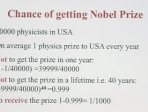 00:27:00
00:27:00
Which Way For Physics?
This talk describes a new approach to the problem of characterising physical reality, one with the potential to fill in gaps in the conventional understanding of nature. It is based on a different view from the usual one of structure at the finest l....
More details | Watch now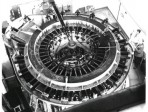 00:35:00
00:35:00
How Advances in Science are Made
How advances in science are made, and how they may come to benefit mankind at large are complex issues. The discoveries that most influence the way we think about nature seldom can be anticipated, and frequently the applications for new technologies....
More details | Watch now 00:44:00
00:44:00
The Impact of Big Science on Astrophysics
The Chandra and Hubble Telescopes are in space and each costs (through operations) several billion dollars. VLT is on the ground but over 20 years of operations will also cost in excess of a billion. They all fall therefore in the category of what ....
More details | Watch now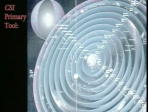 00:35:00
00:35:00
The Large Hadron Collider and the Super World
In the period 1990 to 2001 many powerful new astronomical observational facilities have become operational. Hubble Space telescope was launched in 1990; it was followed by the construction of Keck I in 1992 and Keck II in 1996, by the completion of....
More details | Watch now 00:40:00
00:40:00
The Beginning and Development of the Universe
By careful investigation of relic left on the cosmic scene we have very good evidence and constraints on what has occurred since the beginning of the Universe. This talk reviews the evidence including images and information from the very first light....
More details | Watch now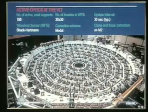 00:32:00
00:32:00
What Future for Energy and Climate?
We are using the planet's fossil fuel resources in a time which is very short compared to that of human evolution. In the same process we are changing the planet's climate and sea level, threatening the future of large segments of the global populat....
More details | Watch now 00:30:00
00:30:00
The Development of Particle Physics
Particle physics mainly developed after World War II. It has its roots in the first half of the previous century, when it became clear that all matter is made up from atoms, and the atoms in turn were found to contain a nucleus surrounded by electro....
More details | Watch now 00:29:00
00:29:00
Discovery of Superconducting Tunneling
I had the great fortune to receive a Nobel Prize in Physics for using electron tunneling to measure the energy gap in superconductors. In this talk I will recollect some of the events that led to this discovery and hopefully I will be able to convey....
More details | Watch now 00:32:00
00:32:00
The Optical Frequency Comb – a Really Versatile Tool
The Optical Frequency Comb concept and technology exploded in 1999-2000 from the synthesis of advances in independent fields of Laser Stabilization, UltraFast Lasers, and NonLinear Optical Fibers. The Comb was developed first as a method for optical....
More details | Watch now 00:29:00
00:29:00
Towards a Quantum Laboratory on a Chip
Microfabricated magnetic traps, waveguides, and other elements for the manipulation of ultracold atoms can be combined to form a quantum laboratory on a chip. Devices such as miniaturized atom lasers, atom interferometers, and atomic clocks have been....
More details | Watch now
